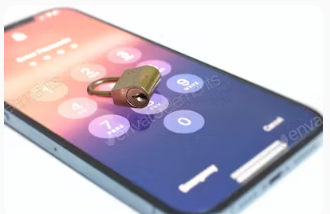As smartphones have become an integral part of our lives, ensuring the security of our iPhones is paramount. iPhones, known for their robust security features, still require proactive measures to safeguard sensitive data and prevent unauthorized access. In this blog, we will explore essential iPhone security tips to help you protect your device and personal information.
- Keep your iOS up to date: Regularly updating your iPhone’s operating system is crucial for maintaining optimal security. Apple frequently releases iOS updates that include security patches, bug fixes, and enhanced protection against emerging threats. Go to Settings > General > Software Update to install the latest iOS version.
- Enable a strong passcode or biometric authentication: Utilize the built-in security features of your iPhone by setting a strong passcode or enabling biometric authentication (Touch ID or Face ID). Avoid easily guessable passcodes and opt for alphanumeric combinations. Enabling biometric authentication provides an extra layer of security and convenience.
- Activate Find My iPhone: Enable the Find My iPhone feature in your iCloud settings. In case of loss or theft, this feature helps you track your device’s location, remotely lock it, or erase its data. To activate it, go to Settings > [Your Name] > Find My > Find My iPhone.
- Be cautious with app installations: Download apps exclusively from the official Apple App Store to minimize the risk of malware or compromised software. Apple’s stringent app review process ensures a higher level of security. Avoid sideloading apps from unofficial sources, as they may contain malicious code.
- Review app permissions: Regularly review the permissions granted to your installed apps. Go to Settings > Privacy to assess the access each app has to features like camera, microphone, location, contacts, photos, and more. Restrict permissions for apps unless they are necessary for their intended functionality.
- Enable two-factor authentication (2FA): Add an extra layer of security to your Apple ID by enabling two-factor authentication. This requires a verification code, in addition to your password, when signing in to your account. To enable 2FA, go to Settings > [Your Name] > Password & Security > Two-Factor Authentication.
- Exercise caution with public Wi-Fi: Public Wi-Fi networks can be vulnerable to hacking attempts and data interception. Avoid accessing sensitive information or making financial transactions while connected to such networks. Use a virtual private network (VPN) service to encrypt your internet traffic for enhanced security.
- Regularly backup your iPhone: Take advantage of iCloud or iTunes to create regular backups of your iPhone’s data. This ensures that your information remains safe even in the event of device loss, damage, or theft. Go to Settings > [Your Name] > iCloud > iCloud Backup to enable automatic backups.
- Be wary of phishing attempts: Attackers may use phishing techniques to trick users into revealing sensitive information. Exercise caution when clicking on unknown links or providing personal details via unfamiliar emails or messages. Verify the authenticity of requests before sharing any sensitive data.
- Install a reputable security app: Consider installing a trusted security app from the App Store for added protection. These apps offer features like malware scanning, safe browsing, and anti-theft measures. Look for reputable options with favorable reviews and regular updates.
Ensuring the security of your iPhone is essential to protect your personal information and maintain your peace of mind. By following these essential iPhone security tips, such as keeping your iOS updated, enabling strong authentication methods, and exercising caution with app installations and public Wi-Fi networks, you can enhance the security of your device and safeguard your data. Remember, staying vigilant and proactive is key to a secure iPhone experience.
